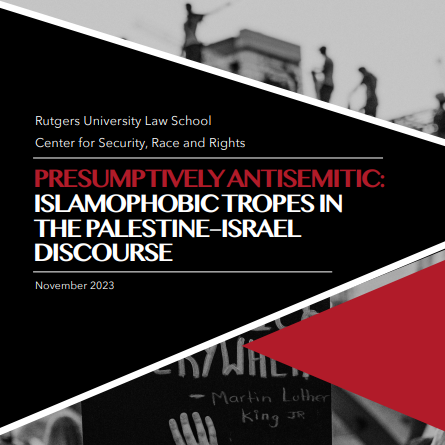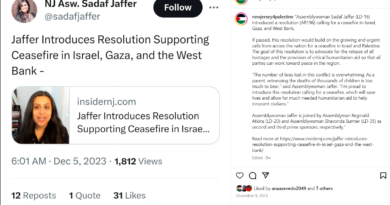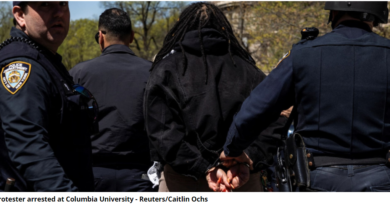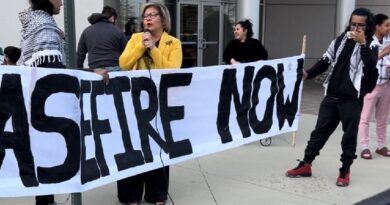Presumptively Antisemitic: Islamophobic Tropes in the Palestine–Israel Discourse, a Report by Sahar Aziz and Mitchell Plitnick
The following description of this report was taken from this Rutgers Law School Camden page for the Center for Security Race and Rights (CSRR).
While the paper was published in November, with NJ Democrats supporting state law to define Israel critique as anti-Semitism and the House Committee on Education and Workforce launching an investigation of Rutgers University – that actually names Sahar Azis, one of the authors. this paper is extremely relevant to these two NJ news stories that are current and ominous. – ed.
The struggle for Palestinian rights has never been more important – or more dire.
The conflict has reached a turning point, as the year 2023 became the deadliest for Palestinians on record. In the Gaza Strip, Palestinians face an existential crisis. Leading genocide scholars, experts in international law, and respected human rights organizations have warned that the world is witnessing a genocide, unchecked war crimes, ethnic cleansing, and crimes against humanity by the state of Israel.
Simultaneously, the demonization of pro-Palestinian voices in the United States has risen to a fever pitch – particularly when those voices are Muslim and Arab. Zionists and Islamophobes attack critics of Israel’s policies and practices by conflating anti-Zionism with antisemitism and seek to censor discussions within the context of the 56-year-long illegal Israeli occupation and the Nakba. Instead, antisemitism is weaponized to silence and discredit advocates of Palestinian human rights.
Presumptively Antisemitic: Islamophobic Tropes in the Palestine-Israel Discourse examines an understudied and little-understood aspect of Palestine-Israel discourse: how Islamophobia works to fuel and sustain spurious allegations of antisemitism used by the Israel Lobby and its Zionist supporters to shame and silence critics of Israeli ethnic cleansing and apartheid.
While people of all faiths and ethnicities understand and empathize with the historic plight of the Palestinians, nowhere is pro-Israel bias more obvious than when directed against Muslim and Arab defenders of Palestinian human rights. And mainstream media often uncritically repeats such harmful, unsubstantiated claims against Arabs and Muslims.
Three recommendations for U.S. civil society, universities, and elected officials would help all those interested in confronting and countering both Islamophobia and genuine antisemitism – while maintaining necessary support for the human rights of Palestinians:
Congress and the President must include the experiences and perspectives of Palestinian, Arab, and Muslim American communities in foreign policy development. U.S. foreign policy on Palestine and Israel currently excludes the lived experiences, analysis, and perspectives of Arabs (especially Palestinians) and Muslims. One-sided, biased input by pro-Israeli nonprofit organizations, elected officials, and analysts predictably dehumanizes Palestinians and exempts Israel from human rights norms.
Universities must preserve academic freedom and free speech rights. When it comes to the topic of Palestine, students and faculty face overt hostility when they host events, conduct research, publish articles, or engage in campus activism. University administrators enable, or participate in, harassment of faculty and students. Specious administrative complaints of antisemitism coupled with malicious blacklisting by a nationwide Islamophobic network work to quash criticism of Israel.
The U.S. government must hold Israel accountable for violations of Palestinians’ human rights. Ongoing violations of international law by Israel – such as settlement expansion, indefinite detention, extrajudicial killings, house demolitions, and collective punishment of the population of Gaza occur unchecked because the United States consistently looks the other way. Even U.S. domestic laws are flouted in order to craft human rights exceptions for the apartheid Israeli regime.
To read Presumptively Antisemitic: Islamophobic Tropes in the Palestine-Israel Discourse, click here.









